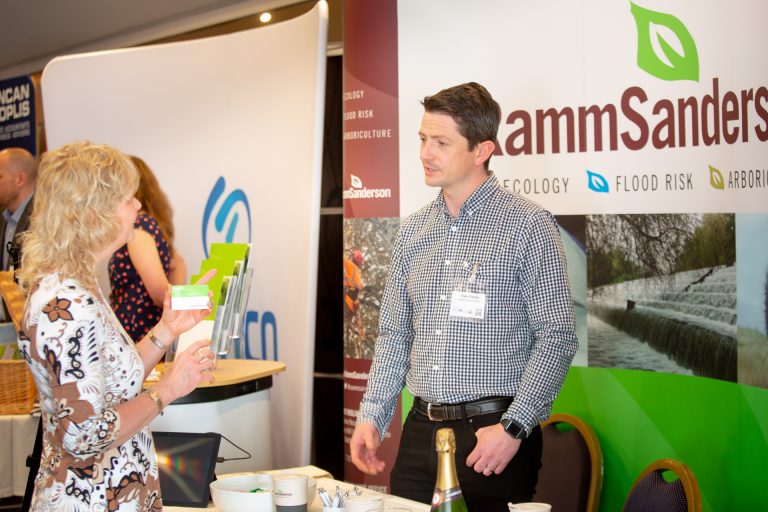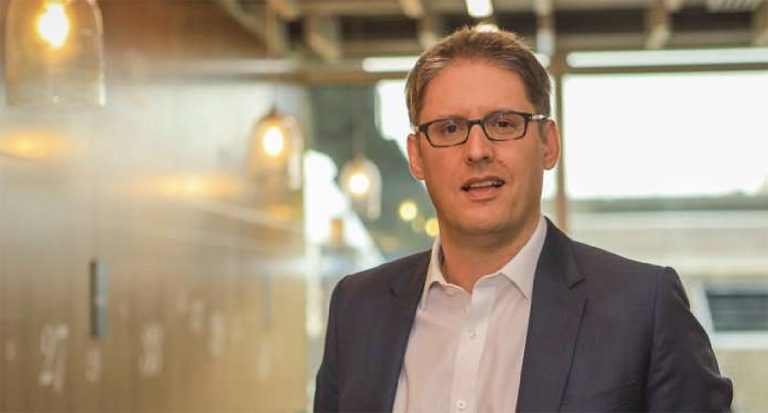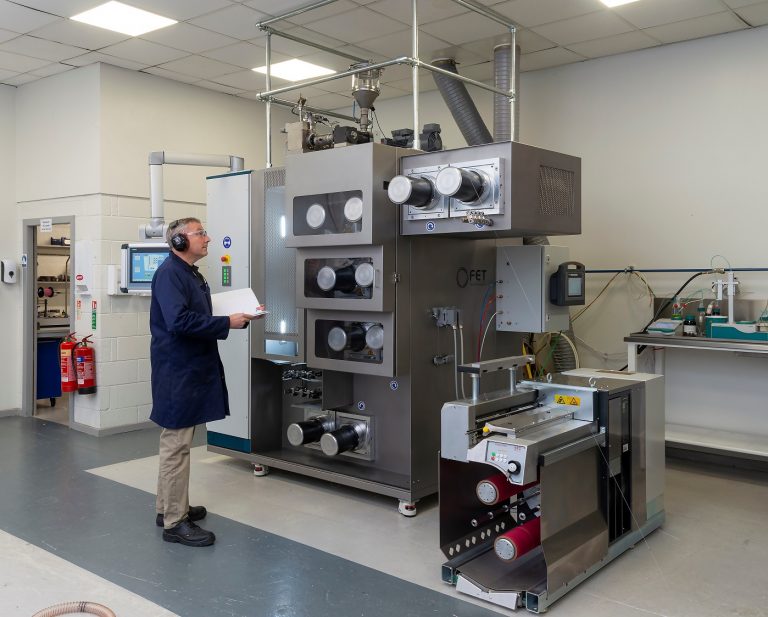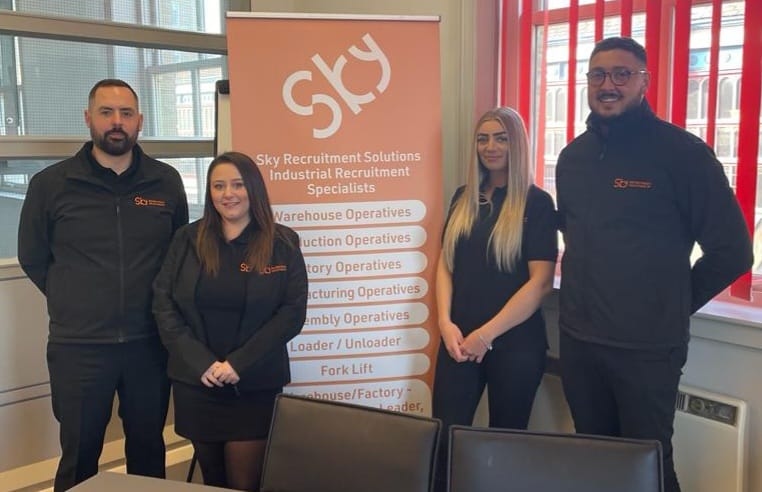Leeds firm acquires North American rail technology software provider in £11m deal
Leeds-based Tracsis, a provider of software, hardware, data analytics/GIS and services for the rail, traffic data and wider transport industries, has acquired RailComm, a North American rail technology software and services provider.
Headquartered in Fairport, New York and established in 1999, RailComm provides mission critical automation and control solutions that reduce costs, increase safety, and improve operational efficiency for rail passenger/freight operators and rail served ports/industrials.
Its two core products are rail yard automation and computer aided dispatching and it has a wide and diversified client base across the North American market. The business has good levels of annual recurring software revenues in addition to large project delivery/systems integration work. The business employs around 30 full-time staff, all of whom will remain with the business post transaction.
For the financial year ended 31 December 2021, RailComm delivered revenue of $6m (£4.6m) including c$2.5m (£1.9m) of recurring software revenue and generated an unaudited loss before tax of $0.3m (£0.2m).
The acquisition consideration comprises an initial cash payment of $11.5m (£8.8m). Additional contingent consideration of up to $2.7m (£2.1m) is payable subject to RailComm achieving certain financial targets in the first full year post acquisition.
Chris Barnes, Chief Executive Officer of Tracsis, said: “This is an important strategic acquisition for Tracsis plc, providing a platform onto which we can start to internationally expand the Tracsis Group and its rail product portfolio via direct access to the significant and growing North American rail technology market. We are delighted to welcome all of the RailComm team into the Tracsis Group and look forward to a successful future working together.”
Joe Forgione, president of RailComm LLC, said: “The RailComm team is very excited about joining the Tracsis Group. Both businesses have a long history of driving innovation via R&D built around long-term client relationships and we look forward to expanding our ability to offer a much broader range of rail technology solutions across our extensive client base in North America.”
Employers and employees asked to help develop West Yorkshire’s ‘Fair Work Charter’
A major public consultation that will inform and develop a Fair Work Charter for West Yorkshire has launched.
Mayor of West Yorkshire, Tracy Brabin, is asking employers, employees, and other organisations across West Yorkshire to #TellTracy about their views on work, and what fair work could mean for them.
The Charter aims to promote, encourage and support employers to meet aspects of fair work that will recognise and deliver good pay, fair and flexible working conditions, and promote greater wellbeing, diversity, and social mobility within the region’s workplaces.
Too many people are working in poor quality jobs
- 29% of West Yorkshire employees, or 271,000 people, are in jobs that don’t meet the ONS definition of Good Work.
- For example, there is a gender pay gap of 12% in average earnings in the region, and two thirds of companies in West Yorkshire have no female representation at director level.
- West Yorkshire’s employment rate is 74%, compared with 77% nationally.
- And for some groups the picture is much worse – the overall employment rate gap for ethnic minorities in West Yorkshire is 18 percentage points and that for people with disabilities is 23 points.
Panel of design experts to help shape future of Sheffield
A panel of experts in the building, design and development sector will help shape the future of Sheffield and support the vast amount of development work taking place across the city as the Sheffield Design Panel relaunches in June this year.
The Panel, which is chaired by David Rudlin, is made up of a group of experts from a range of built environment professions including sustainability, urban design, architecture, landscape architecture and development. Their background ranges from the public and private sectors, both locally and nationally.
Sheffield City Council is ambitious for high quality design that reflects the character of the city, enhancing Sheffield’s heritage and history while leading in modern, innovative and sustainable development.
The design panel will meet every six to eight weeks to consider upcoming large-scale schemes, before they’re considered by the planning committee, with a focus on details and quality issues. Feedback is then provided to the planning committee to support the process.
Councillor Mazher Iqbal, Executive Member for City Futures: Development, Culture and Regeneration, said: “The face of Sheffield is constantly changing and growing, and it’s important that throughout all of that growth we create the best places and spaces for our businesses and our people.
“The Sheffield Design Panel will assess projects and developments to ensure they complement, enhance and work to our city’s advantage. They are not here to inhibit or hinder progress, but to help shape ideas and plans for everyone’s benefit.
“The independent panel is made up of industry professionals from all relevant sectors, which means they can assess how a project will look, whether it’s sustainable and accessible, and whether it’s right for Sheffield.
“With so much development currently taking place, and planned for the future, this is a very exciting time for the city and the Sheffield Design Panel have a very significant role to play in shaping it’s transformation.”
The first meeting of the renewed panel will take place in June.
While the Sheffield Design Panel is made up of around 18 professionals it is looking to recruit more members to support the huge amount of development work happening in Sheffield.
The Panel hope to add 12 more experts with experience of working in the private or public sectors, representing local and national practices.
Make new contacts at The Property & Business Investment Lincolnshire Expo
Perfect for establishing new contacts, the free to attend Property & Business Investment Lincolnshire Expo will return on Wednesday 27 April 2022 at The Bentley Hotel, Lincoln.
Business Link is a proud partner of the well targeted event aimed at the Construction, Property, Business, Investment, Finance, Professional Services and related B2B markets.
To see who is exhibiting click here.
Opening at 9am, the expo will also host a seminar, and as the exhibition closes, it will roll directly into an informal, open buffet style network lunch – tickets are just £25 plus vat and can be ordered and paid for directly online.
Spaces for the lunch are limited, so order as soon as possible to avoid disappointment.
Tina King, of Business Shows Group, said: “It’s been a long time in the making thanks to the pandemic, but we are finally nearly there, The Property & Business Investment Lincolnshire Expo is gearing up to be one of the best to date!”
To attend the event, register for free here.
To generate opportunities by exhibiting at the event, click here.
Purchase tickets to the networking lunch here.
Meet more potential clients in one amazing cost effective day, than it would take months out on the road.
Manufacturers continuing to increase prices at record rates
Manufacturers are continuing to raise both UK and export prices at record levels in the face of escalating inflationary pressures across the board which show little sign of abating, according to a survey published by Make UK and business advisory firm BDO.
According to the Make UK/BDO Q1 Manufacturing Outlook survey, UK prices rose from a balance of +52% in Q4 2021 to +58%. These are the highest balances in the survey’s history and the fourth successive quarter where record numbers of companies increasing prices has been reached. Given the survey was conducted before the invasion of Ukraine and the substantial increases in the costs of energy and raw materials since, this is likely to have pushed price increases even higher.
To give an indication of just how sharply inflation has bitten, and how manufacturers have responded, the equivalent balance on domestic prices in Q4 2019 before the onset of the pandemic and leaving the EU was just +5%, with the equivalent balance in Q1 2020 +16%.
A similar picture exists for export prices where the balance reported at +50%. By contrast, the balance in Q1 2020 was +13%.
The survey shows a broad impact of escalating costs with over half of companies (54.2%) seeing a major increase in the cost of raw materials and more than a third of companies (37.4%) seeing a major increase in the cost of energy. Almost 10% of companies say that increases in both these indicators represent a ‘threatening increase’ to their business, with a quarter of companies (23.7%) saying that it will take more than two years to resolve energy related costs for their business.
In response to this cocktail of rising cost burdens for business Make UK is urging the Chancellor to use his forthcoming Spring Statement to delay the planned increase in National Insurance and examine other ways to ease business costs and boost investment. These include:
- Reinstate business rates relief for small businesses and bring forward the improvement relief and investment relief exemptions by 12 months
- Extend the Super Deduction scheme with a view to making it permanent at the Autumn Budget.
CBI calls for firms to support Russian sanctions and get involved in aid for Ukraine
The conflict in the Ukraine conflict shows quite clearly that the UK must start bolstering its future economic resilience, from our supply chains and energy sources to our cyber security, according to CBI Director-General Tony Danker.
He said: “To do that, the Government will need to fast-track progress on some of the big policy issues and help firms invest. Business stands ready to support them in that endeavour.
“Since the start of this crisis, the CBI has been guiding thousands of firms across the country to support economic sanctions on Russia and to get behind humanitarian efforts for people in Ukraine and for refugees. Convening its councils and roundtables across the UK, CBI members are supportive of sanctions, despite the real costs involved in doing so.
“The next phase must be finding our economic resilience, better ensuring our fate remains in our hands on this conflict and for the future.”
“Sanctions have been a successful start to global efforts to isolate the Putin regime. But the next phase will require global economies, including Britain, to be economically resilient to further threats.”
He said the crisis showed the UK had to move far faster towards clean energy solutions. “We need to double down on successful strategies for wind power and nuclear. And we must go further and faster to deliver investible business models for carbon capture and hydrogen. Government is moving too slowly on these solutions.
“We need to stand behind domestic oil and gas in our energy transition. That’s why the government is right to take forward the aims of its North Sea Transition Deal with industry, and we need to recognise immediately the looming crisis in domestic and business energy bills. We need to move immediately towards energy efficiency in homes to dampen down demand. And government will need to think urgently about consumers’ as bills go higher still later in the year.”
His calls came amongst a package of pleas covering minerals, commodities, cyber security and business investment, adding: “Firms fully support sanctions despite their cost. Meanwhile the CBI will continue to advise companies on what’s required and ensure the government understands the implications of its decisions for UK firms domestically and overseas.”
Yorkshire-based FET gears up for Hamburg Show
Yorkshire-based company Fibre Extrusion Technology Limited (FET), is looking forward to exhibiting at the prestigious Techtextil Frankfurt trade show once again. Techtextil attracts international blue-chip companies at the cutting edge of technology, seeking innovative solutions to technical challenges, so this event represents an ideal opportunity to demonstrate how FET can help achieve their goals.
FET is an acknowledged world leader in laboratory and pilot meltspinning equipment for a vast range of applications, such as precursor materials used in high value technical textiles, sportswear, medical devices and specialised novel fibres from exotic and difficult to process polymers. Where melt spinning solutions are not suitable, FET provides a viable alternative with pilot and small scale production wet spinning systems.
However, FET will also showcase at Techtextil its more recent laboratory scale spunbond system, which enables client development of nonwoven fabrics in a number of formats and polymers. FET already has a number of spunbond systems in the field, including composite systems which utilise both spunbond and meltspun functions.
A major theme to be highlighted on the FET stand is Sustainability. The FET range of laboratory and pilot extrusion lines is ideally suited for both process and end product development of sustainable materials.
Going ‘back to basics’ is key to recruitment firm’s outstanding growth
A recruitment company is celebrating substantial growth – expanding from two members of staff to 10 in just a year. Sky Recruitment Solutions opened an office in Huddersfield town centre in early 2021, starting out with an account manager and a coordinator.
Twelve months on, staff numbers have swelled to 10, with five employees taken on in recent weeks.
The new recruits are accounts co-ordinator Raymond Worby, contracts manager Alex Bull, account manager Macey Laverick, trainee account manager Danielle Hyland-Lister and Carl Thomas, who will be mechanical handling equipment (MHE) trainer, starting on March 21.
Sky Recruitment Solutions, which specialises in providing personnel for industrial roles, also has branches in Derby, Ripley, Mansfield and Burton-on-Trent, as well as on-site offices in Castle Donington, Huddersfield and Elland.
And the success of the Sky Recruitment Solutions brand doesn’t stop there – there are plans to open a further office in Bradford in the next year.
Shane Callaghan, regional business manager for Sky Recruitment Solutions, was brought on board to help establish the Huddersfield office.
He said: “I think the key to our success has been ‘going back to basics’. We look at the clients’ needs, rather than just putting bottoms on seats, and it works well. “We listen to candidates as well, to make sure the job is right for them. We have a fantastic retention rate, too. I also think, for our staff, it’s all about the work-life balance we offer – it’s not a corporate, mundane environment. We all work as a team and support each other in and out of work.”
Hull announced as the co-working capital of the UK, with new business initiative
A hive of business and culture growth and innovation in the north, Hull has been declared the best place for co-working in the UK, with an innovative new initiative to support workers to pursue their dream career without compromising on connectivity, culture, or cost of living.
The brand-new and unique Work Hull Work Happy project officially launched yesterday and will connect workers with local businesses offering co-working space, driving investment in the region. As the best-connected city outside of London, Hull offers an ideal base for start-ups, graduates, and experienced professionals alike with a reduced cost of living and excellent quality of life – and retain the best professional talent in the area.
Emma Hardy, MP for West Hull and Hessle, is one of the movement’s key supporters. She said: “Nobody should feel forced to leave the place they love to get the job they want, and the launch of this project will help to put Hull on the map as the co-working capital of the UK.
“Now that businesses can sign up to offer co-working space, we will have the most accessible and diverse spaces throughout the city. This, paired with the best high-speed broadband in the country, together with all of the benefits of living in Hull, I really believe is an opportunity to kickstart a new era for the city and breathe new life into our local economy.
“Co-working also provides a whole host of benefits beyond salaries for workers, including supporting mental wellbeing, making new business connections and developing professionally as well. Being able to work remotely for any company while enjoying the wonderful life that can be enjoyed in Hull will firmly place the city at the forefront of modern working.
The Work Hull Work Happy initiative launched with a special event at the former HSBC bank in central Hull, which recently underwent a refurbishment by local company The 55 Group. The launch saw speeches from the founders and key backers of the initiative, attended by key business VIPs from across the region. The venue is one of many buildings in the city which will host co-working spaces for individuals and businesses.
The initiative will have benefits for workers and businesses alike. Co-working supports mental wellbeing as well as enabling new business connections, networking, and continued professional development, bringing new faces and fresh ideas into the workplace.
Gerard Toplass, group executive chairman of The 55 Group, said: “Some say that Hull is the end of the line, but we know it’s just the start of the journey. The pandemic changed everything when it comes to how, why and where we work – and people can enjoy an excellent quality of life by co-working in Hull.
“Remote working opportunities can bring high-quality jobs to regions of the UK where they weren’t previously available, boosting local economies, retaining the best talent and providing excellent quality of life for people.”
Businesses and organisations that have committed their support to date include HullBID, Prince’s Quay, Moodbeam, C4Di, Garness Jones, Quickline, Hammonds of Hull, Public First, Hull What’s On and Northern Powerhouse.
Speaking at the official launch, Rachel Reeves, shadow chancellor of the exchequer and MP for Leeds West, said: “I was delighted to attend the official launch of Work Hull Work Happy, marking the commencement of this exciting initiative. The exciting potential for so much growth in cities like Hull shows how we can build a stronger economy across all parts of the UK.”
SMEs must have a powerful voice, says new FSB Chairman
Entrepreneur and small business champion Martin McTague has called for a more powerful voice for the UK’s 5.5m small firms, which he says are the beating heart of the economy and communities across the country.
The newly-appointed National Chair of the Federation of Small Businesses , says: “There has never been a more important time to make sure their interests are represented at the highest levels, as the costs and challenges of running a small business intensify.
“Small firms are absolutely crucial to the economic recovery, bringing innovation and dynamism, creating jobs, growth and opportunities. They account for 60% of private sector employment in the UK and make up 99% of all businesses. But they face significant barriers which I’m determined to pull down – from growth-inhibiting tax hikes to poor treatment by big business clients.
“Big businesses must become better corporate citizens with their supply chains, including when it comes to stamping out poor payment practices, reducing bureaucracy, and gifting through the Apprenticeship Levy. I want to use the opportunity as National Chair to offer advice and assistance to larger firms wanting to do the right thing and back small business.
“FSB has a proud and successful track record of being a powerful voice heard in governments, opposition parties and boardrooms across the UK. As part of a new leadership team alongside Tina McKenzie; as well as Chair, Internal Affairs Melanie Ulyatt; and the rest of the Board; I’m committed to making sure small businesses are fully supported, represented, and their interests are wired into the DNA of decision-makers at all levels.”












